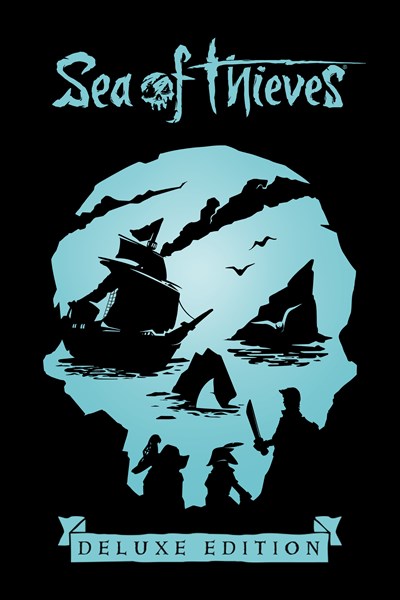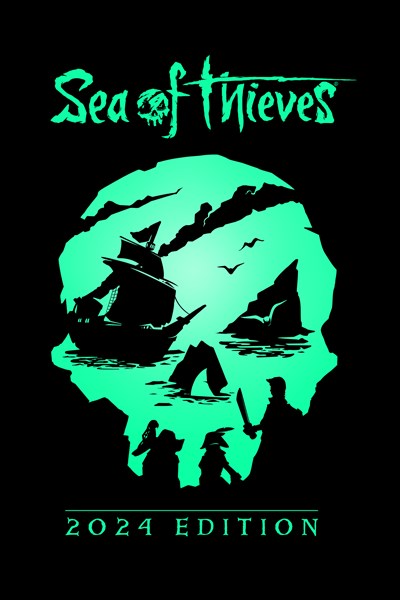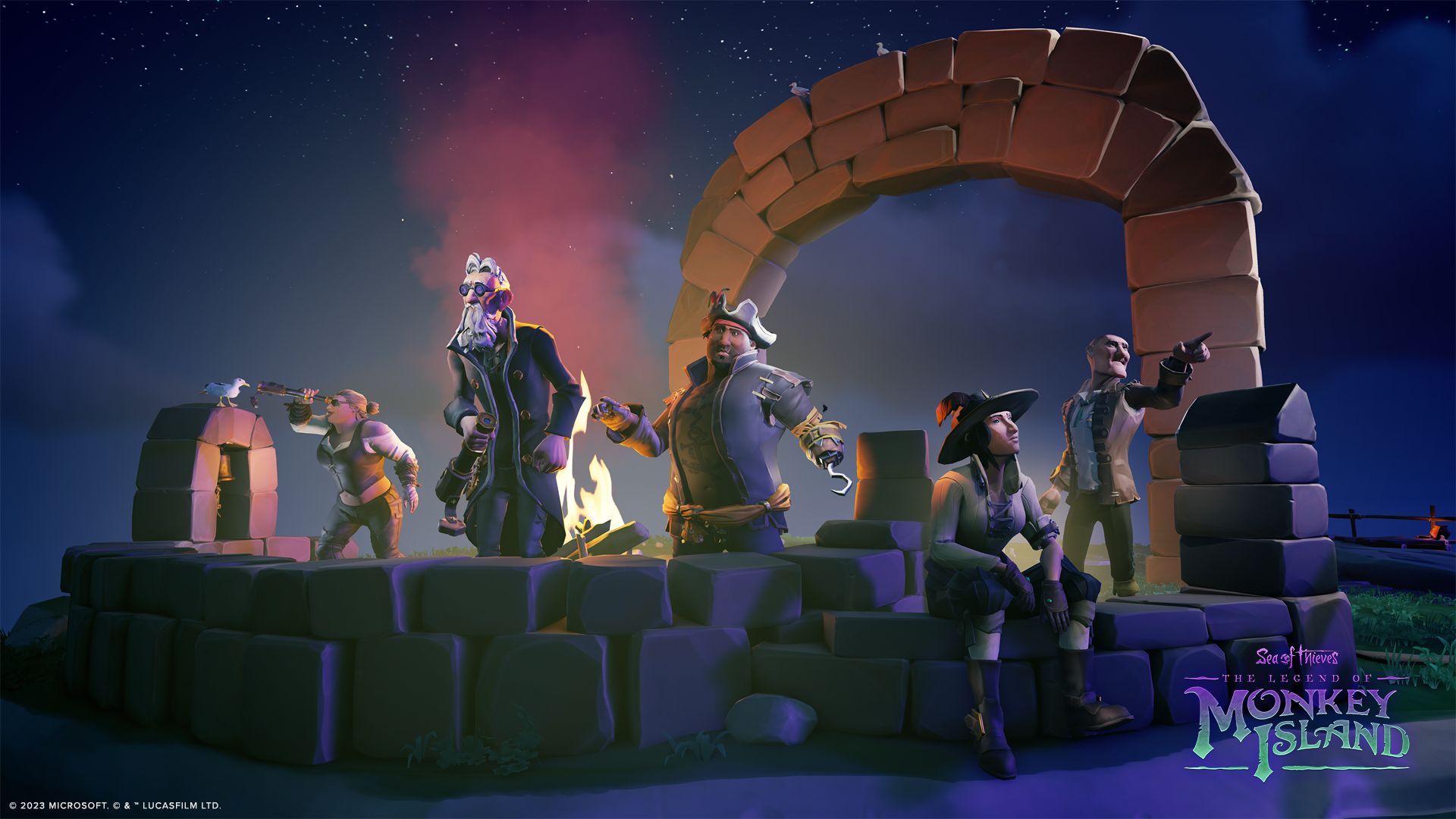
The Legend of Monkey Island: How Sea of Thieves Is Translating Monkey Island’s Story, Gameplay, and More — an Exclusive Interview
When it appeared in last month’s Xbox Games Showcase, we spoke with creative director Mike Chapman about how The Legend of Monkey Island came to be and what it was setting out to do. But was that enough? Of course not – there’s so much more to talk about in this landmark crossover between Sea of Thieves and the Monkey Island series.
With that in mind, here’s a whole new interview, digging deeper into the three-part expansion’s storyline, how it uses Monkey Island as an inspiration for a whole new gameplay experience within Sea of Thieves, and, yes, whether there will be Insult Sword Fighting.
You already told us that this would draw inspiration from existing stories from the Monkey Island universe, and how it takes some queues from The Curse of Monkey Island – but what can you tell us about the tales we’ll actually be playing?
We wanted to approach a ‘what if?’ question – “What if characters from Monkey Island discovered the Sea of Thieves world?” – it felt like what the two had in common was something that’s at the very heart of Monkey Island; Guybrush starts his journey as a pirate wannabe and, of course, in Sea of Thieves, you play as yourself – you create your pirate and you go on a journey to become a Pirate Legend. So, in the Sea of Thieves, Guybrush can be the legend he’s always wanted to be. So, what if that was at the heart of our story? What if the Sea of Thieves could give Guybrush everything he ever wanted?
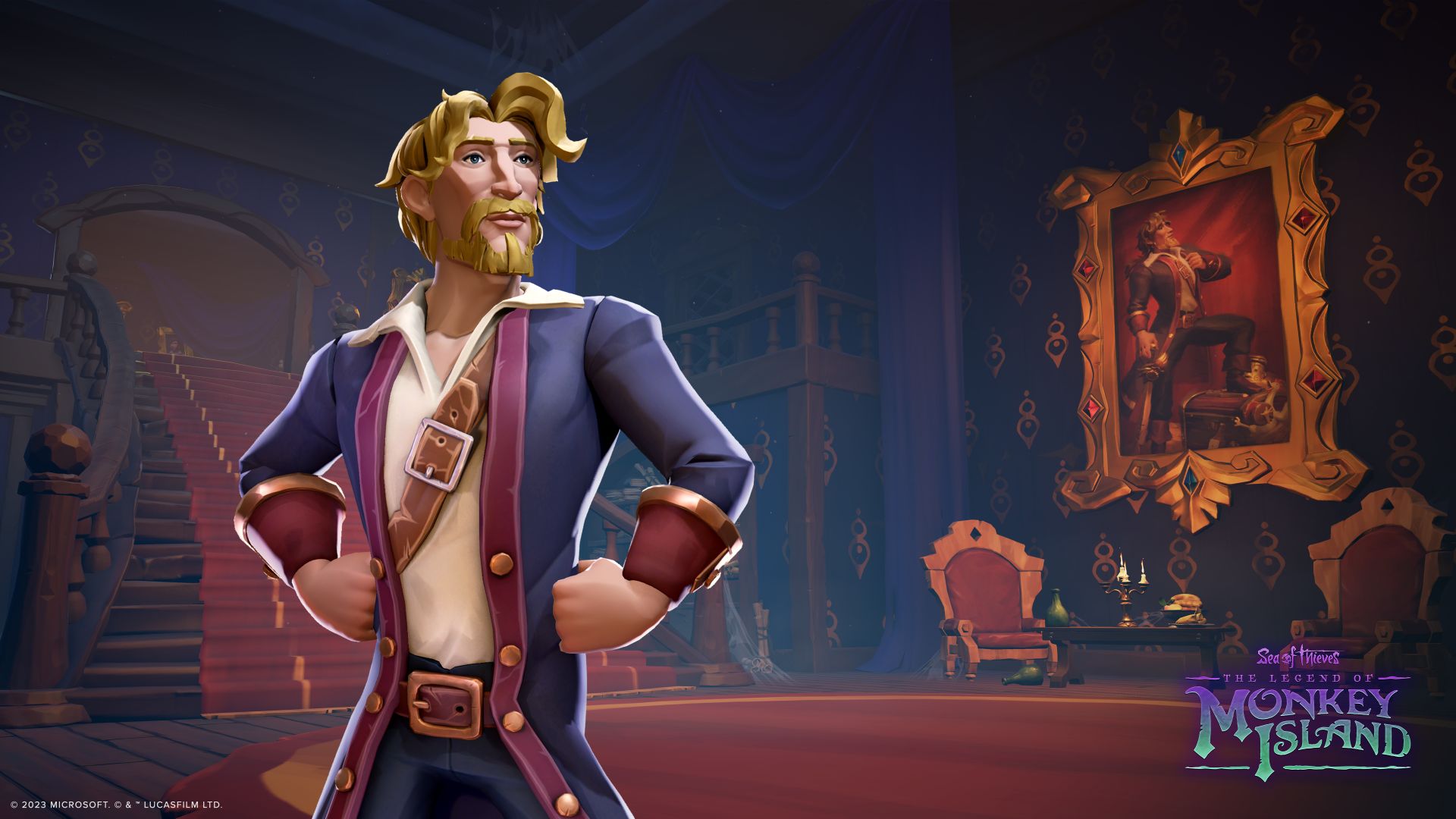
And as part of our storytelling, it’s also the Achilles heel of Guybrush. We build that into our story –LeChuck has come to the Sea of Thieves, and he’s used its unique magic to create this fantasy for Guybrush where he is the legend he’s always wanted to be and, through that power, he’s quarantined him off in the Sea of the Damned. But in classic Sea of Thieves style, you get to go knock some sense into Guybrush.
This is an opportunity for players to unravel a mystery of Guybrush’s fate and how LeChuck is using the magic of the Sea of Thieves to imprison him. We take players to iconic locations like Mêlée Island, seeing the island in its entirety but also visit the fabled Monkey Island itself.
It’s one thing to recreate those locations inside your game, but the tone of Monkey Island is so distinct – how did you make it feel right in such a new context?
That was such a critical part. Just imagine the amount of time you spend interacting with characters in those original games. Nailing that was so important – it was important to us to create space for where these characters could have these key moments, really trying to give each one a moment to shine.
“What if the Sea of Thieves could give Guybrush everything he ever wanted?”
Critically, it’s not just featuring characters for the sake of it – if a character is going to appear in our Tales, they need to have a place as part of the story. So even though we largely take inspiration from the first two Monkey Island games, a key exception and example of that idea is the character of Murray. It felt like the idea of a talking skull, we’ve kind of done that in Sea of Thieves before, so we knew we had to have Murray in there. I spent a lot of time thinking about what the right set piece for Murray is, and he has an amazing opportunity to shine in the very first Tale, where you get to interact with him directly. The kind of the gameplay that you go through with Murray is just a lot of fun.
As you’ve said, the versions of Monkey Island and Mêlée Island we’ll be exploring are fantasies created by LeChuck, but are they faithful to how players remember them?
I’m sure it’s come across, but the amount of focus we’ve put into making those iconic locations feel faithful was huge. What we always did as part of our process was to – when you walk to a location in 3D – always try and position the camera in exactly the same position as it was in the original point-and-click games, inviting players to do that one-to-one comparison.
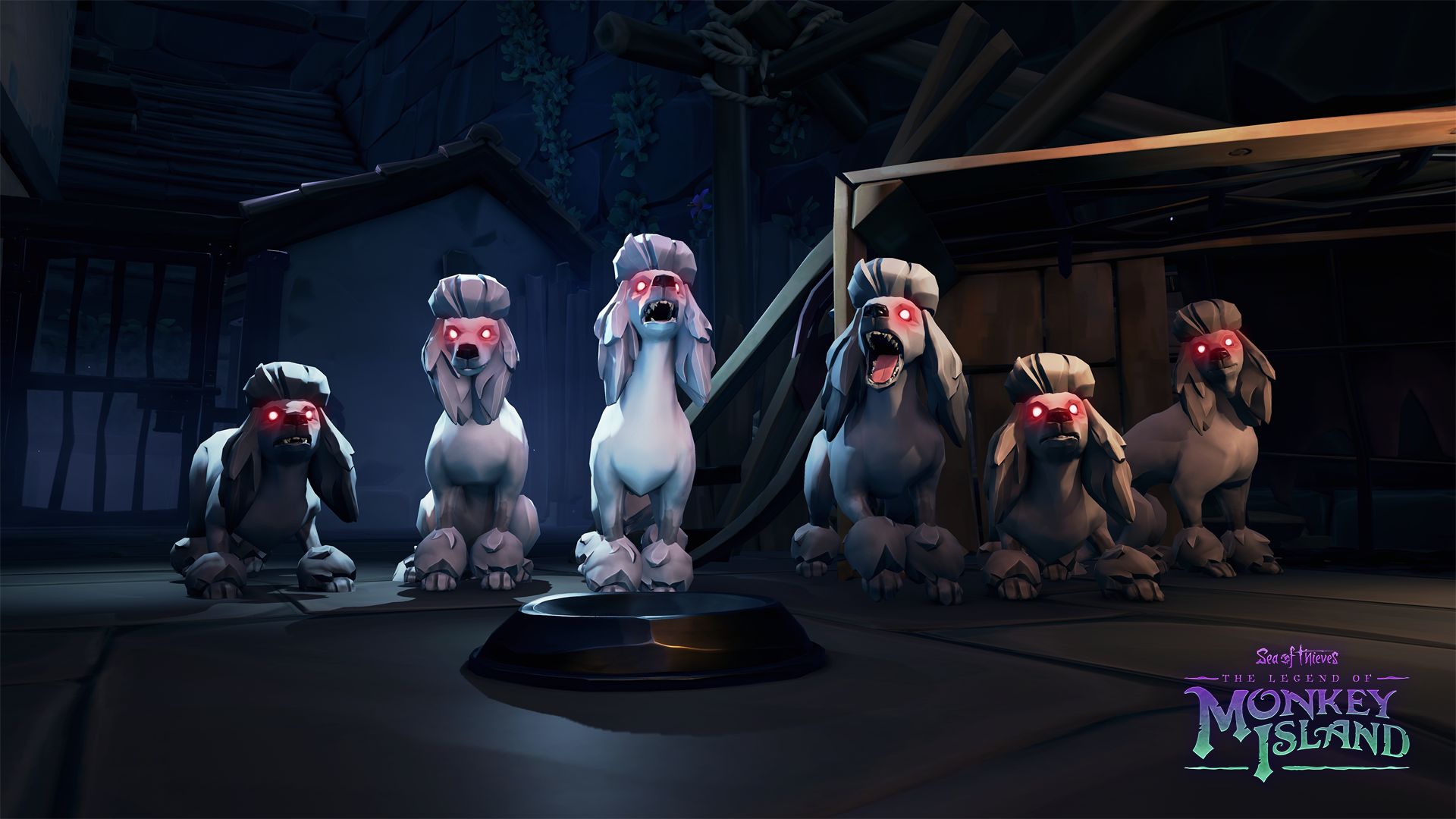
Players may find that in certain key locations, if you position your camera where it was in the original games, there are these hidden positions where you can hear a memory of Guybrush or Elaine narrating what happened at that moment in the original story. There’s an optional objective to go find all these hidden memories positions around the islands. If players find all those hidden memory spots, they’ll get Monkey Island-themed pictures they can hang on their ship as a reward.
You pulled a similar trick when you created an explorable version of the original Pirates of the Caribbean attraction in A Pirate’s Life – but this seems like a far bigger version of that. How did that compare?
That creative challenge of taking the Isla Tesoro town that you see on the Pirates of Caribbean attraction – and trying to deliver that fantasy of ‘What if you got out of the little boats that you ride and explored?’ – was obviously a thrill in and of itself because of how iconic that location is. But even that was in 3D – the whole way you’ve interacted with Monkey Island before is typically on a 2D plane, and you’re pointing and clicking. How do we reimagine that as a first-person experience?
“We wanted to strike a balance of feeling faithful to the feel of Monkey Island, but still be respectful of the fact that this is a first-person experience.”
How do we give you the sense that these places feel lived in, and you see not only the pieces that you saw in the original games, but all the bits that you didn’t always see? What would my perspective be if I could move that camera that was looking at the 2D scene and move it into the corner of the SCUMM Bar? And if we did that, would it still live up to the imaginations of fans over the years? Living up to the expectations of as many players as possible has been a really interesting creative challenge.
We’ve talked a lot about the story and the locations, but will the gameplay here differ from classic Sea of Thieves, too? Is this a Sea of Thieves take on point-and-click?
We had a great opportunity with Legend of Monkey Island to really rethink character interactions. In the past, we’ve had full-voiced cutscenes, but when you talk to NPCs in the game itself you’d just be reading the text on screen. In Legend of Monkey Island all of the interactions with characters are fully voiced, and there’s more of a back and forth in terms of the questions that you ask them and what they say back, creating engaging conversations with the NPCs.
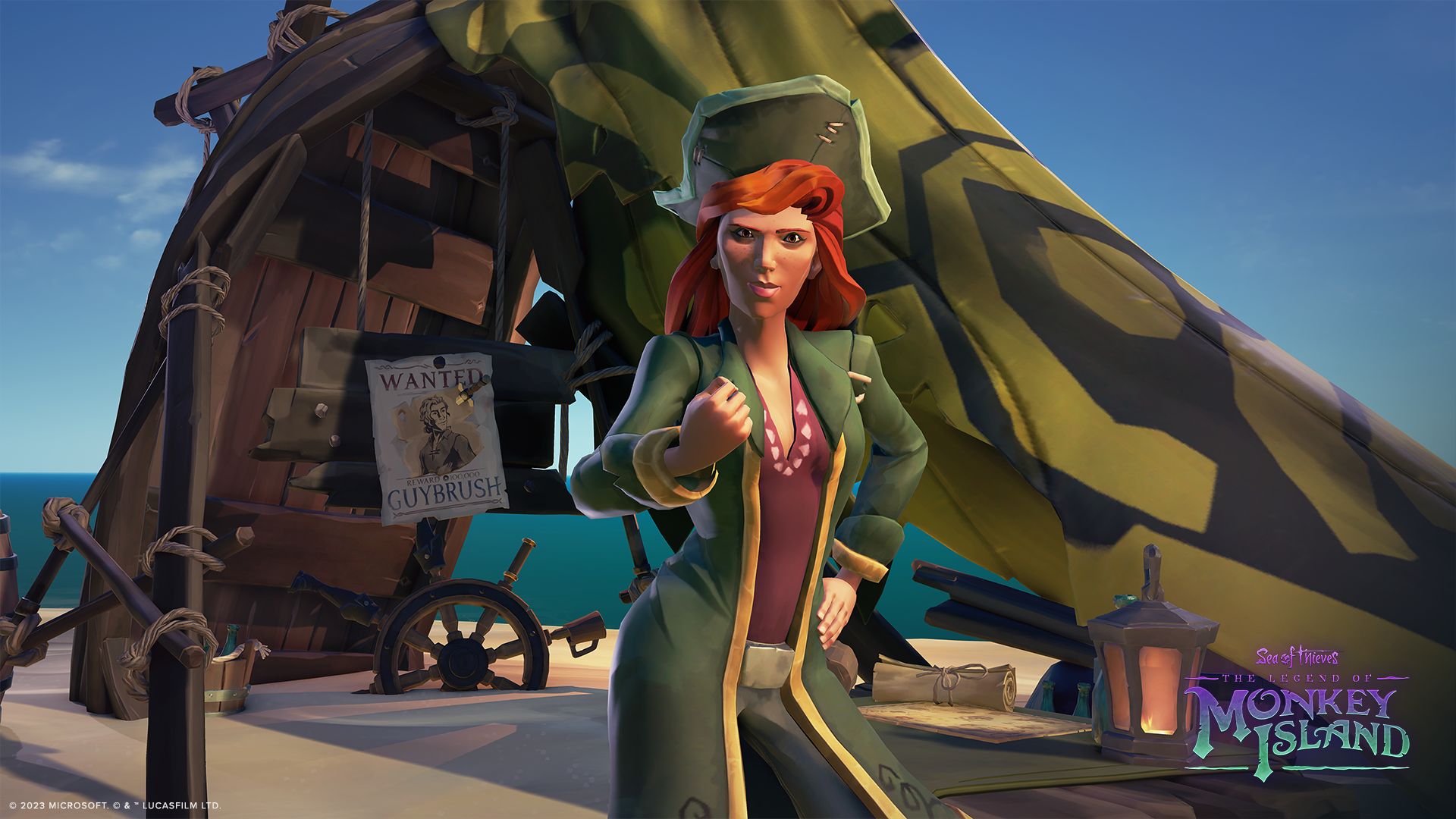
It was also important to us to lean into the puzzle gameplay often seen within the Monkey Island series. What’s great about Sea of Thieves is it’s already quite a physical world where you interact with physical items in quite a tangible way. It gave us an opportunity to say, ‘Here’s Item A, and then you find Item B and then you can combine them’, which gives you a new way to interact with the world. Using items and knowledge from NPCs means there’s a lot more focus on that physical puzzle-solving with items in the world. Of course, there are also action set pieces where you’d want them, meaning we still have these kind of climactic moments within the Tales, but the core structure of the Tales is built around really playful interactions with objects and mechanics in the world.
The mechanics we’ve created for Legend of Monkey Island will share technology forward to the main sandbox. We’ve overhauled our NPC dialogue system, so we can now have fully voiced characters, and there’s now AI pathing for NPC characters, so characters can move around in the world freely operating under their own brain. There’s little mechanical elements as well – like we’ve added zip lines to these Monkey Island Tales, which I’d love to see make their way to the shared world.
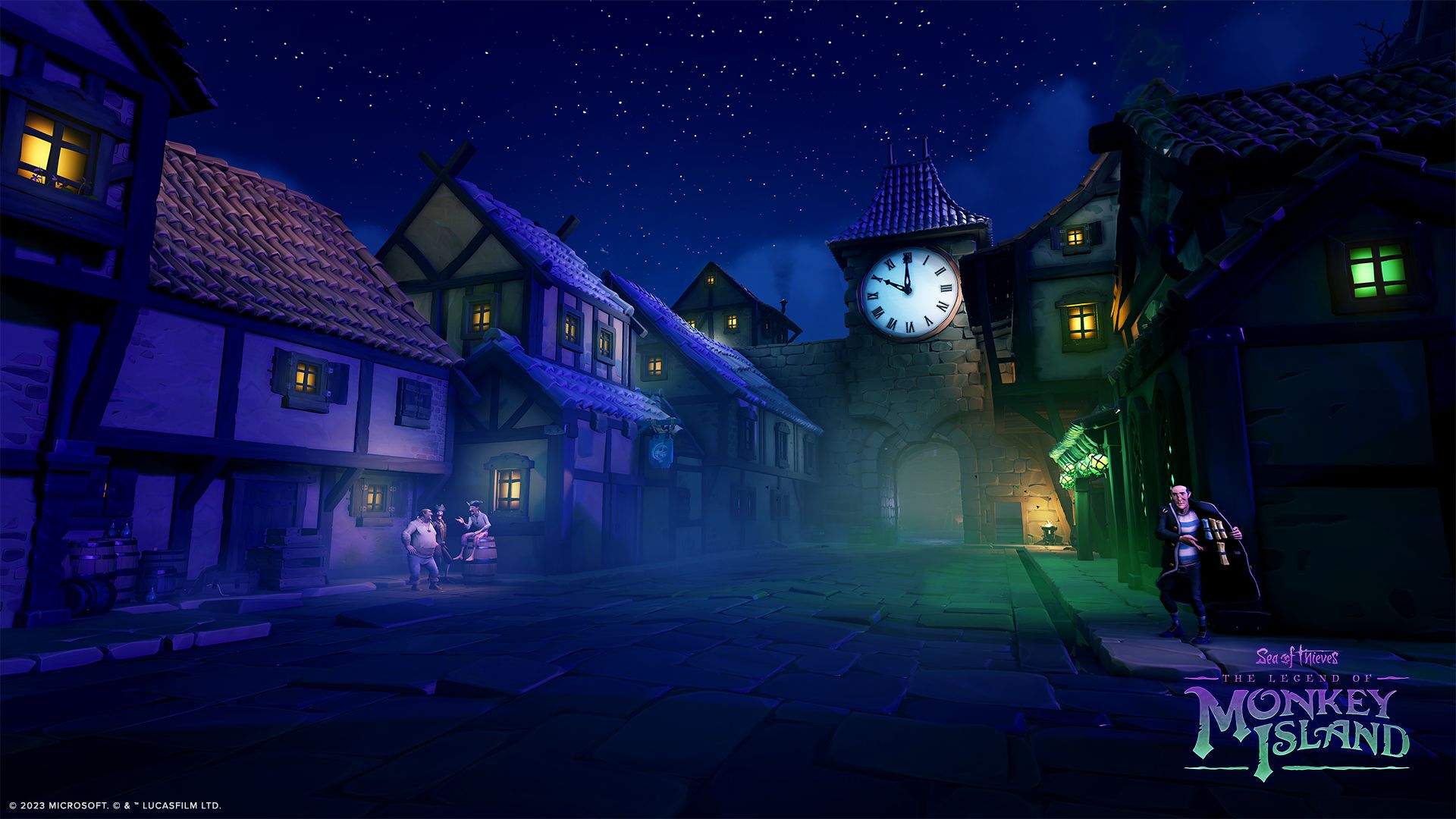
Monkey Island, particularly the first game, is famously tricky with some of its puzzles. How far towards “Rubber Chicken With a Pulley in the Middle” have you gone with your own?
That’s a great question. We wanted to strike a balance of feeling faithful to the feel of Monkey Island, but still be respectful of the fact that this is a first-person experience, the gameplay is more visceral. As a result, it’s a little bit more immediate. So we still want those mental leaps that players can make to solve puzzles, and then feel great having done it, but we’ve tried to make these puzzles feel as relatable as possible.
And because it takes place in Sea of Thieves, how you relate to the items and what they feel like they could be used for is familiar. You’ve also got the Tall Tale book, which is obviously a consistent point across all the Tall Tales, so we use that to give players additional information. It’s almost like a hint book that you’re taking with you, which gives you little pointers.
“Insult Sword Fighting – we had to do it. But I think it also adds a new puzzle element to the combat in Sea of Thieves, which works really nicely.”
We also do little things in point-and-click style. There isn’t an interaction in our game to ‘Look’ at something, but in Monkey Island that was used to give players additional context. In Legend of Monkey Island, when you approach something, sometimes you’ll see tooltip text, not giving you the solution, but setting up a solution.
There’s one mechanic I think a lot of people are going to ask about – is Insult Sword Fighting in here?
That was one of the first questions we asked when we decided you’d be able to explore the full Mêlée Island. It felt like something as iconic as Insult Sword Fighting – we had to do it. But I think it also adds a new puzzle element to the combat in Sea of Thieves, which works really nicely.
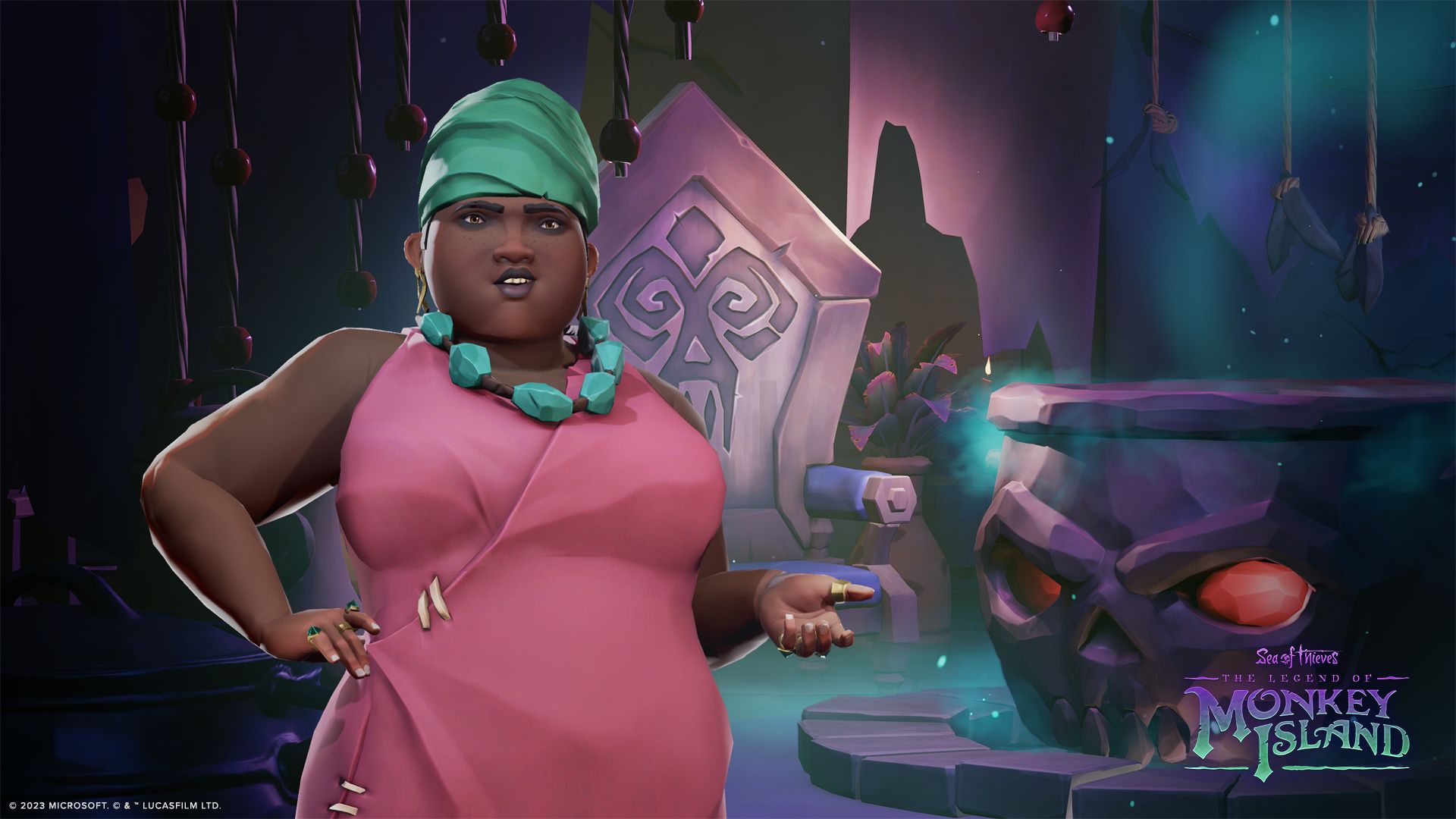
So I got really excited about the idea of including Insult Sword Fighting, because it allows you to have those more visceral moments, because it’s in first-person, you’re fighting your opponent directly. But it’s also more accessible because the bulk of the flow of combat is handled through the quips and the retorts, and how you build up that knowledge of the insults.
What really comes through to me is that you seem just as excited about putting these locations into your game as you are about telling this story. Do you think players will be spending as much time exploring what you’ve built as they will going on this journey?
What really excites me is that – once you activate the Tales, and once you sail through the Tunnels of the Damned – you’re straight on Mêléeisland. I can’t wait to see our community use the church to stage their mock weddings, or just spend time together, sitting down on the seats in the Scumm bar drinking grog. I think it’s going to be fun for players to just go back to and, because they are these freeform locations, just spend time there with their friends – even if you’re not immediately pushing the Tale forward. I think there’s real opportunity there with the way that Sea of Thieves is played.
Sea of Thieves: The Legend of Monkey Island will be released as three free monthly updates, beginning on July 20.

Sea of Thieves Deluxe Edition
Microsoft Studios


Sea of Thieves: 2024 Edition
Microsoft Studios

